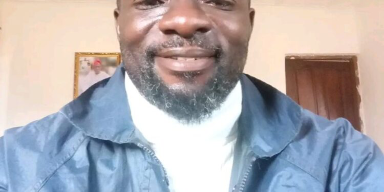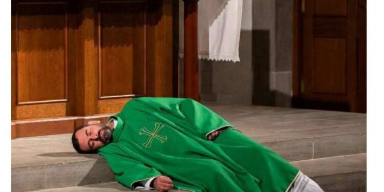Politics
#OpEd: Democracy In Africa And The Dangers Of A Judicial Selectorate, By Chidi Anselm Odinkalu
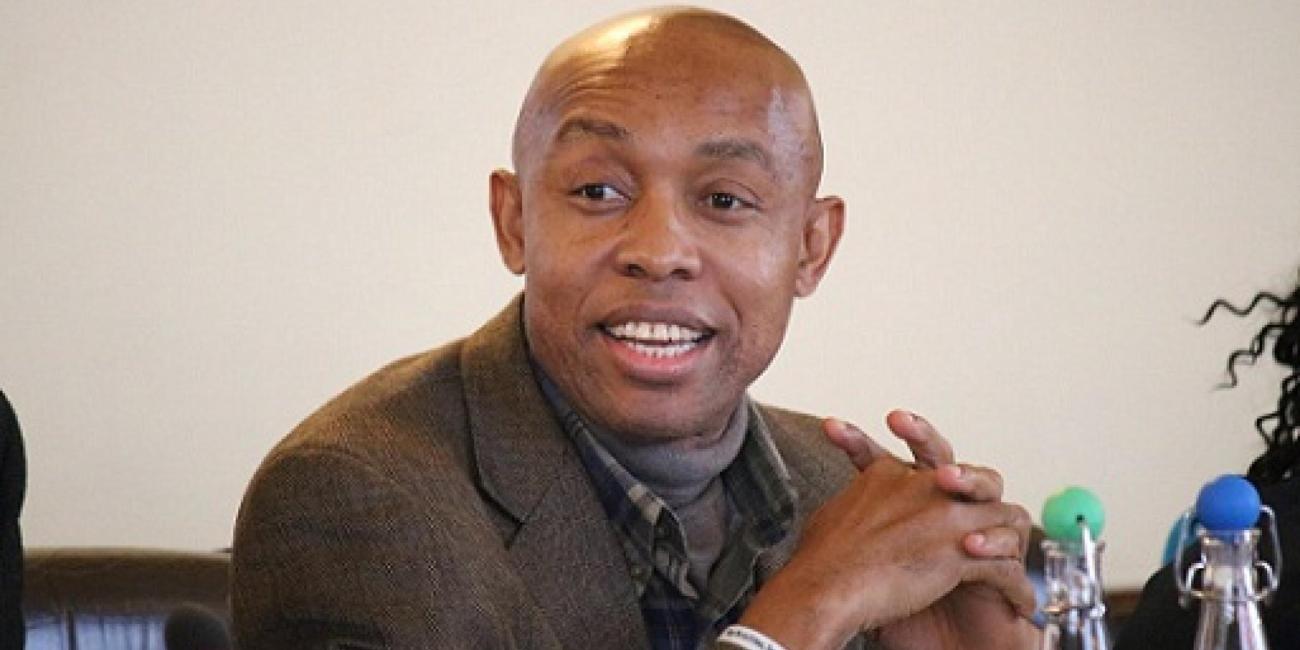
The more election disputes end up in court, the more it becomes evident to politicians that it is easier to make deals with the judges.
In March 2006, Uganda’s Supreme Court convened to begin adjudication of the disputes over the presidential election that occurred the previous month in the country. Voting took place on 23 February. Two days later, on 25 February, the Electoral Commission announced the results giving the incumbent, Yoweri Kaguta Museveni, 59.28% of the valid votes cast. In second place, with an award of 37.36% of the votes, the Commission announced Kiiza Besigye, a medical doctor whose military career began as part of the bush war that brought Museveni to power 20 years earlier in 1986.
In his petition against the announced result, Col. Besigye argued that the Electoral Commission did not validly declare the results in accordance with the Constitution, and the Presidential Elections Act; and that the election was conducted in contravention of the provisions of both. His evidence was compelling.
Yet, the impression that the petition process was a ritual performance with a predetermined outcome pervaded the process. Leading the legal team for the Electoral Commission of Uganda who were defendants in the petition was Lucian Tibaruha, Solicitor-General of Uganda. In reality, he also led the lawyers for the president, also a defendant alongside the Electoral Commission. Handling election petitions for a party political candidate was not supposed to be part of Lucian’s job,but there he was.
Presiding was Bejamin Josses Odoki, Chief Justice of Uganda since 2001 and the author of the 1995 Constitution that incrementally made Museveni a life president. Idi Amin, Uganda’s infamous military dictator, elevated Odoki to the bench as a 35 year old in 1978. Amin’s nemesis, Museveni, elevated him to the Supreme Court eight years later and made him Chief Justice in 2001.
Announcing its reasoned judgment in January 2007, the court found that there had been non-compliance with the Constitution of Uganda and the applicable laws in the form of “disenfranchisement of voters by deleting their names from the voters register or denying them the right to vote” as well as “in the counting and tallying of results.”
The Court equally found as a fact that the “principle of free and fair elections was compromised by bribery and intimidation or violence in some areas of the country” and also that “the principles of equal suffrage, transparency of the vote, and secrecy of the ballot were undermined by multiple voting, and vote stuffing in some areas.”
Despite these findings, Chief Justice Odoki and his court ruled by a majority of four votes to three of Justices of the Supreme Court of Uganda to uphold the election and grant President Museveni another five years in power. Two years after this decision, in 2009, when the Chief Justice’s son, Phillip Odoki, wedded, Museveni’s son, General Muhoozi Kainerugabawas the best man
In 2010, it emerged that Chief Justice Odoki never harboured any doubts about the outcome. Questioned about the role of judges in deciding elections in Africa, Odoki, “smiled when commenting that to nullify a presidential election would be suicidal.” He lived to see his peers in Kenya and Malawi do just that in 2017 and 2020 respectively. It proved not to be suicidal.
According to former law teacher, Olu Adediran, the role of judges in these kinds of cases is in reality “a compromise between law and political expediency.” Jude Murison is more direct in calling it “judicial politics.” Judges are not instruments of change or revolution and when they are called upon to adjudicate between sides in a political dispute, they are more often than not likely to treat that not as an opportunity to change political paymasters except when the bell has already tolled undisputedly for an incumbent.
Politicians are supposed to sell themselves to the people through their programmes and through campaigns in a contest of both ideas and vision. In return, the people through their votes offer endorsement to the politicians and programmes whom they believe best advance their interests. An electoral commission is a referee supposedly engaged and maintained at the public expense to administer this contest.
This is where things begin to break down. Although engaged in the name of the people, every electoral commission is appointed by people in power who never wish to relinquish it. When a dispute emerges as to the kind of job done by the electoral commission, it ends up before judges. However, the same people who appoint the electoral commission also usually appoint the most senior judges into office. In the maelstrom of party political competition, guardrails break down as politicians struggle to casualise the popular electorate in order to prosper a judicial selectorate.
The more election disputes end up in court, the more it becomes evident to politicians that it is easier to make deals with the judges. The people are and can be unpredictable, unlike most judges. Increasingly, therefore, politicians seek to judicialize the site of decision-making on elections, relocating that from the polling booth to the courtroom.
If a politician can get their spouse appointed to become a judge, they can even make the site of decision-making in elections more intimate, relocating it from the courtroom to the bedroom.
Instead of the usual soapbox, increasingly elections in many countries can be decided by good old pillow-talk. Former federal legislator, Adamu Bulkachuwa, whose wife, Zainab, headed Nigeria’s Court of Appeal for six years until 2020, published the manual on this model of electoral ascendancy in his parliamentary valedictory remarks as a senator in June 2023.
This is why the judicialization of politics in Africa increasingly represents a huge risk to the popular will as the basis of government. First, it vitiates the right to democratic participation and suppresses the popular will as the foundation for democratic legitimacy. Second, it enables the courts to deprive the people of their democratic rights, accomplishing that under the alluring pretence of rule of law. Third, it provides perverse incentives for politicians to capture the courts, making the judiciary in many African countries a battleground for the pre-determination of election outcomes. Fourth, it has the capacity to alter the character of the judiciary from an independent institution to a plaything of political insiders.
This trend in consigning elections to the care of a judicial selectorate around Africa now endangers judges and their independence. In Malawi, in 2020, the president attempted to remove the Chief Justice in order to secure a Supreme Court panel more solicitous of his interests in the lead-up to a presidential re-run, following a rigged electoral contest that had been struck down by the courts.
The following year in September 2021, the ruling party in Zimbabwe pressured the Constitutional Court to overrule an earlier decision of the High Court that blocked an extension of the tenure of the Chief Justice after he had reached the official retirement age. This allowed the Chief Justice to still serve, but on a contract that made him more subject to presidential whim. Ahead of contentious national elections two years later, the same president decided to advance $400,000 to all serving judges in Zimbabwe in “housing loan” with no repayment obligations.One of the beneficiaries was the chair of the Zimbabwe Electoral Commission (ZEC), herself a serving judge.Unsurprisingly, she announced her benefactor, the incumbent president, as winner in the ensuing election.
Even worse, this trend now also endangers entire countries, if not indeed regions. This was evident in April 2020, when Mali’s Constitutional Court overturned the results of 31 parliamentary seats won by the opposition. Its decision to hand these seats over to the ruling party sparked an uprising that led first to the dissolution of the Constitutional Court, and later the overthrow of the government in a military coup.
Mali’s twin crises of governmental legitimacy and state fragmentation is a tragic reminder of the dangers of judicial overreach in election adjudication. But the crisis in Mali has also become a regional crisis for West Africa. To adapt an expression familiar to new-age Pentecostals in West Africa: what judges cannot do does not exist.
A lawyer and a teacher, Odinkalu can be reached at chidi.odinkalu@tufts.edu
Politics
Electoral Reform: Dino alleges senate’s plot to rig 2027 election
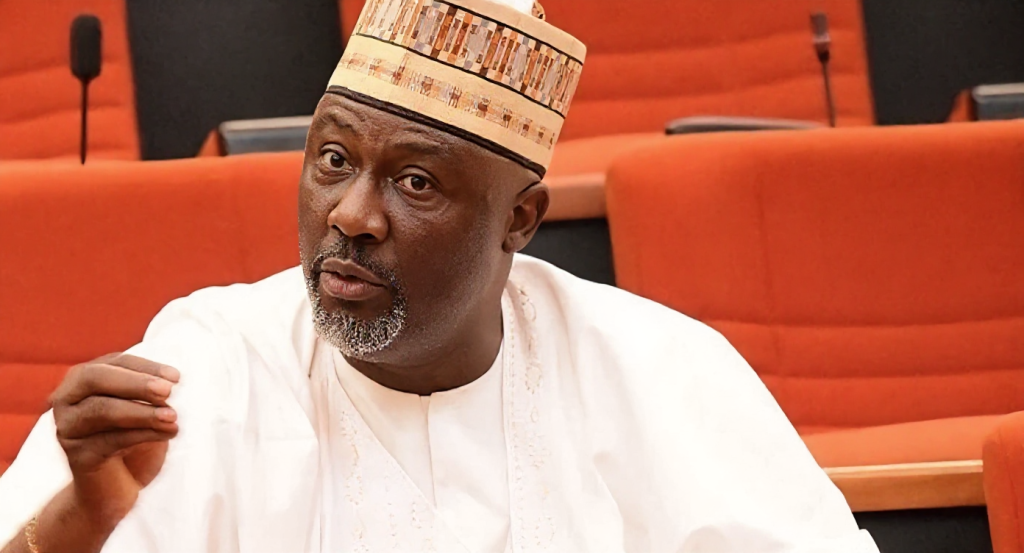
Former lawmaker, Dino Melaye Esq, has raised concerns over the Senate’s reported rejection of the electronic transmission of election results.
The move, according to Melaye, is a clear endorsement of election rigging and an indication of a sinister plan to rig the 2027 elections.
In a statement on Friday, the former lawmaker criticized the Senate’s decision, stating that it undermines the credibility of the electoral process.
The African Democratic Congress, ADC chieftain, also stated that the move opens the door for electoral manipulation and fraud.
He further warned that the rejection of electronic transmission of results is a step backwards for democracy in Nigeria.
Melaye called on lawmakers and citizens to stand up against “this blatant attempt to undermine the will of the people and ensure that future elections are free, fair, and transparent”.
Politics
Electoral Act: Nigerians have every reason to be mad at Senate – Ezekwesili
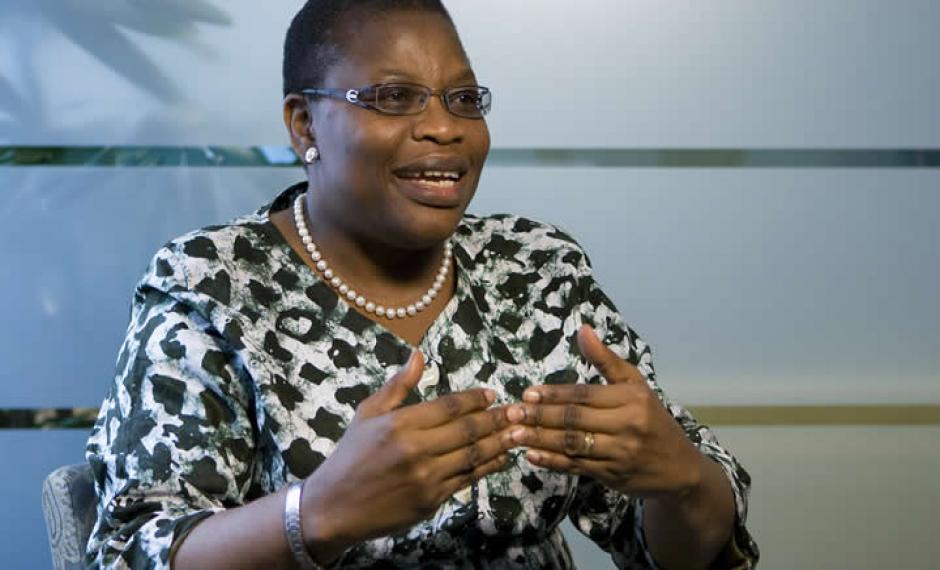
Former Minister of Education, Oby Ezekwesili, has said Nigerians have every reason to be mad at the Senate over the ongoing debate on e-transmission of election results.
Ezekwesili made this known on Friday when she featured in an interview on Arise Television’s ‘Morning Show’ monitored by DAILY POST.
DAILY POST reports that the Senate on Wednesday turned down a proposed change to Clause 60, Subsection 3, of the Electoral Amendment Bill that aimed to compel the electronic transmission of election results.
Reacting to the matter, Ezekwesili said, “The fundamental issue with the review of the Electoral Act is that the Senate retained the INEC 2022 Act, Section 60 Sub 5.
“This section became infamous for the loophole it provided INEC, causing Nigerians to lose trust. Since the law established that it wasn’t mandatory for INEC to transmit electoral results in real-time, there wasn’t much anyone could say.
“Citizens embraced the opportunity to reform the INEC Act, aiming to address ambiguity and discretionary opportunities for INEC. Yet, the Senate handled it with a “let sleeping dogs lie” approach. The citizens have every reason to be as outraged as they currently are.”
Politics
Electoral act: Senate’s action confirms Nigeria ‘fantastically corrupt’, ‘disgraced’ – Peter Obi
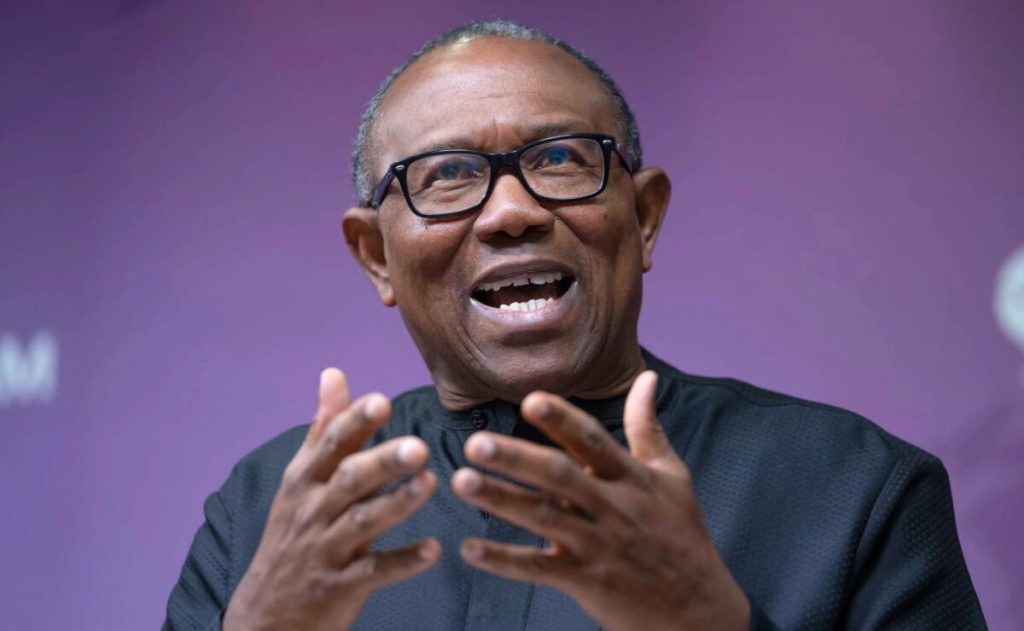
Former Labour Party presidential candidate, Peter Obi, has condemned the Senate’s refusal to make electronic transmission of election results mandatory, saying the move further exposes Nigeria as a fantastically corrupt and disgraced country.
Obi expressed his views in a statement shared on X on Friday, where he accused lawmakers of deliberately weakening Nigeria’s democratic process ahead of the 2027 general elections.
He explained that his reaction came after a brief pause to mourn victims of a deadly tragedy in Kwara State, where over 150 people reportedly lost their lives.
“Let us first pray for the souls of the innocent Nigerians lost in Kwara. That painful incident is why I delayed responding to the shameful development surrounding our electoral system,” he wrote.
Describing the Senate’s decision as intentional and dangerous, Obi said rejecting mandatory electronic transmission was not a simple oversight but a calculated attempt to block transparency.
“The Senate’s open rejection of electronic transmission of results is an unforgivable act of electoral manipulation ahead of 2027,” he said.
According to him, the action strikes at the heart of democracy and raises serious questions about the true purpose of governance in Nigeria.
“This failure to pass a clear safeguard is a direct attack on our democracy. By refusing these transparency measures, the foundation of credible elections is being destroyed. One must ask whether government exists to ensure justice and order or to deliberately create chaos for the benefit of a few.”
The former Anambra State governor linked the post-election controversies of the 2023 general elections to the failure to fully deploy electronic transmission of results, insisting that Nigerians were misled with claims of technical failures.
“
The confusion, disputes and manipulation that followed the 2023 elections were largely due to the refusal to fully implement electronic transmission,” he said.
He added that the so-called system glitch never truly existed.
Obi compared Nigeria’s electoral process with those of other African countries that have embraced technology to improve credibility, lamenting that Nigeria continues to fall behind.
“Many African nations now use electronic transmission to strengthen their democracy. Yet Nigeria, which calls itself the giant of Africa, is moving backwards and dragging the continent along.”
He criticised Nigeria’s leadership class, saying the country’s problems persist not because of a lack of ideas but because of deliberate resistance to meaningful reform.
“We keep organising conferences and writing policy papers about Nigeria’s challenges. But the truth is that the leaders and elite are the real problem. Our refusal to change is pushing the nation backwards into a primitive system of governance.”
Warning of the dangers ahead, Obi said rejecting electronic transmission creates room for confusion and disorder that only serves the interests of a small group.
He also recalled past remarks by foreign leaders who described Nigeria as corrupt, arguing that actions like this continue to justify those statements.
“When a former UK Prime Minister described Nigeria as ‘fantastically corrupt,’ we were offended. When former US President Donald Trump called us a ‘disgraced nation,’ we were angry. But our continued resistance to transparency keeps proving them right.”
Obi warned that Nigerians should not accept a repeat of the electoral irregularities witnessed in 2023.
“Let there be no mistake. The criminality seen in 2023 must not be tolerated in 2027.”
He urged citizens to be ready to defend democracy through lawful and decisive means, while also calling on the international community to closely monitor developments in Nigeria’s electoral process.
“The international community must pay attention to the groundwork being laid for future electoral manipulation, which threatens our democracy and development,” Obi stated.
He concluded by expressing hope that change is still possible if Nigerians take collective responsibility.
“A new Nigeria is possible but only if we all rise and fight for it.”
-
Business1 year ago
US court acquits Air Peace boss, slams Mayfield $4000 fine
-

 Trending1 year ago
Trending1 year agoNYA demands release of ‘abducted’ Imo chairman, preaches good governance
-

 Politics1 year ago
Politics1 year agoMexico’s new president causes concern just weeks before the US elections
-

 Politics1 year ago
Politics1 year agoPutin invites 20 world leaders
-

 Politics1 year ago
Politics1 year agoRussia bans imports of agro-products from Kazakhstan after refusal to join BRICS
-
Entertainment1 year ago
Bobrisky falls ill in police custody, rushed to hospital
-
Entertainment1 year ago
Bobrisky transferred from Immigration to FCID, spends night behind bars
-
Education1 year ago
GOVERNOR FUBARA APPOINTS COUNCIL MEMBERS FOR KEN SARO-WIWA POLYTECHNIC BORI







